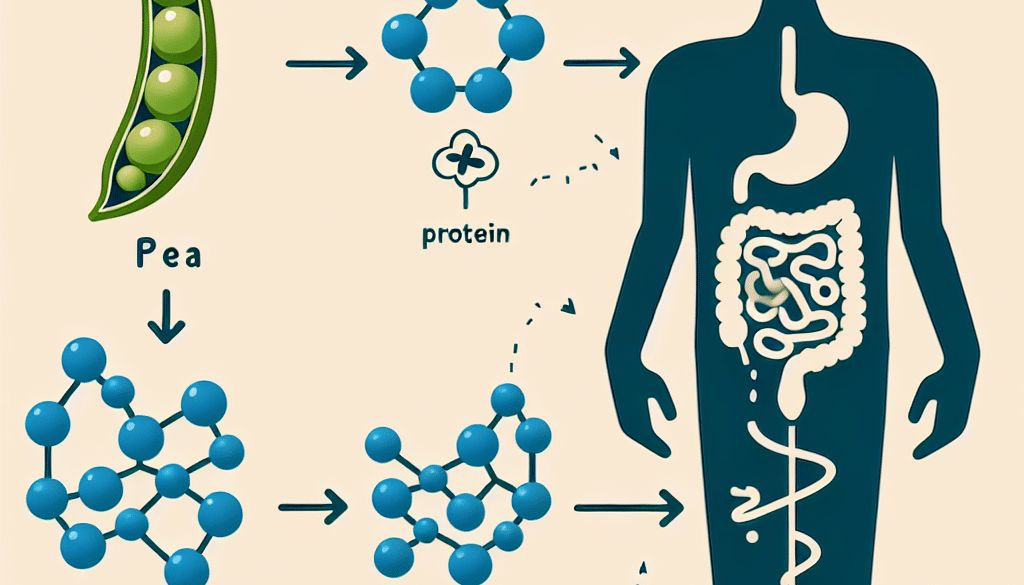Can pea protein cause lBS?
-
Table of Contents
Pea Protein and IBS: Understanding the Connection
Pea protein has become a popular plant-based alternative to animal-derived proteins, especially among vegetarians, vegans, and those with dietary restrictions. However, as its consumption increases, concerns about its potential digestive side effects, such as irritable bowel syndrome (IBS), have also surfaced. This article delves into the relationship between pea protein and IBS, exploring whether this plant-based protein can trigger or exacerbate IBS symptoms.
What is IBS?
Irritable bowel syndrome (IBS) is a common gastrointestinal disorder characterized by symptoms such as abdominal pain, bloating, gas, diarrhea, and constipation. The exact cause of IBS is not well understood, but it is believed to result from a combination of factors including gut-brain axis dysfunction, gut motility issues, and heightened gut sensitivity.
Pea Protein: An Overview
Pea protein is derived from yellow split peas and is a high-quality protein that contains all nine essential amino acids. It is often used in protein powders, meat substitutes, and dairy-free products. Pea protein is favored for its hypoallergenic properties and sustainability credentials.
Can Pea Protein Cause IBS?
The question of whether pea protein can cause IBS is complex. While pea protein itself is not a recognized cause of IBS, it may trigger symptoms in some individuals. Here are several factors to consider:
- FODMAP Content: Pea protein is considered low in FODMAPs (fermentable oligo-, di-, mono-saccharides, and polyols), which are short-chain carbohydrates that can cause digestive distress in sensitive individuals. However, whole peas are a source of FODMAPs, and some pea protein products may contain remnants of whole pea components.
- Fiber Content: Pea protein often contains dietary fiber, which can be beneficial for gut health but may also exacerbate IBS symptoms in some people, particularly those with a sensitivity to fiber.
- Additives and Sweeteners: Many pea protein products include additives, artificial sweeteners, or sugar alcohols, which can irritate the gut and trigger IBS symptoms.
- Individual Sensitivities: Some individuals may have specific sensitivities or allergies to peas or components in pea protein products that could lead to IBS-like symptoms.
Research and Case Studies
Scientific research on pea protein and IBS is limited. However, studies on plant-based proteins and digestive health can provide some insights. For example, a study published in the Journal of Nutrition found that dietary pea protein did not negatively affect gut health in rats. Human studies are needed to fully understand the impact on IBS.
Case studies and anecdotal reports from individuals with IBS who have consumed pea protein suggest that reactions are highly individualized. Some report improvements in digestive health, while others experience an increase in IBS symptoms.
Managing IBS Symptoms with Pea Protein
If you have IBS and are considering pea protein, here are some tips to minimize potential adverse effects:
- Choose pea protein isolates, which are more refined and contain fewer FODMAPs and fibers.
- Start with a small serving size and gradually increase to assess tolerance.
- Opt for products with minimal additives and sweeteners.
- Consult with a healthcare professional or dietitian to tailor your diet to your specific needs.
Conclusion: Pea Protein and IBS – A Personal Matter
In conclusion, while pea protein is not a direct cause of IBS, it may trigger symptoms in some individuals. The impact of pea protein on IBS is highly personal and can vary based on the product’s composition and the individual’s digestive sensitivities. It is essential to approach pea protein consumption with caution if you have IBS and to consult with a healthcare provider for personalized advice.
Discover ETprotein’s High-Quality Protein Products
If you’re looking for a reliable source of pea protein that may be suitable for those with IBS, consider ETprotein’s offerings. ETprotein specializes in producing high-quality organic bulk vegan proteins, including pea protein, that are characterized by a neutral taste, non-GMO, and allergen-free attributes. Their pea protein products are designed to cater to various dietary needs and preferences, making them a potential option for individuals managing IBS.
About ETprotein:
ETprotein, a reputable protein and L-(+)-Ergothioneine (EGT) Chinese factory manufacturer and supplier, is renowned for producing, stocking, exporting, and delivering the highest quality organic bulk vegan proteins and L-(+)-Ergothioneine. They include Organic rice protein, clear rice protein, pea protein, clear pea protein, watermelon seed protein, pumpkin seed protein, sunflower seed protein, mung bean protein, peanut protein, and L-(+)-Ergothioneine EGT Pharmaceutical grade, L-(+)-Ergothioneine EGT food grade, L-(+)-Ergothioneine EGT cosmetic grade, L-(+)-Ergothioneine EGT reference grade and L-(+)-Ergothioneine EGT standard. Their offerings, characterized by a neutral taste, non-GMO, allergen-free attributes, with L-(+)-Ergothioneine purity over 98%, 99%, cater to a diverse range of industries. They serve nutraceutical, pharmaceutical, cosmeceutical, veterinary, as well as food and beverage finished product distributors, traders, and manufacturers across Europe, USA, Canada, Australia, Thailand, Japan, Korea, Brazil, and Chile, among others.
ETprotein specialization includes exporting and delivering tailor-made protein powder and finished nutritional supplements. Their extensive product range covers sectors like Food and Beverage, Sports Nutrition, Weight Management, Dietary Supplements, Health and Wellness Products, and Infant Formula, ensuring comprehensive solutions to meet all your protein needs.
As a trusted company by leading global food and beverage brands and Fortune 500 companies, ETprotein reinforces China’s reputation in the global arena. For more information or to sample their products, please contact them and email sales(at)ETprotein.com today.














